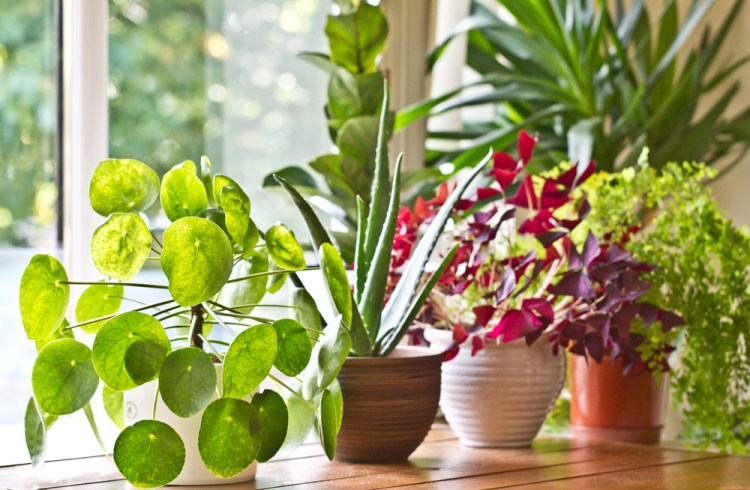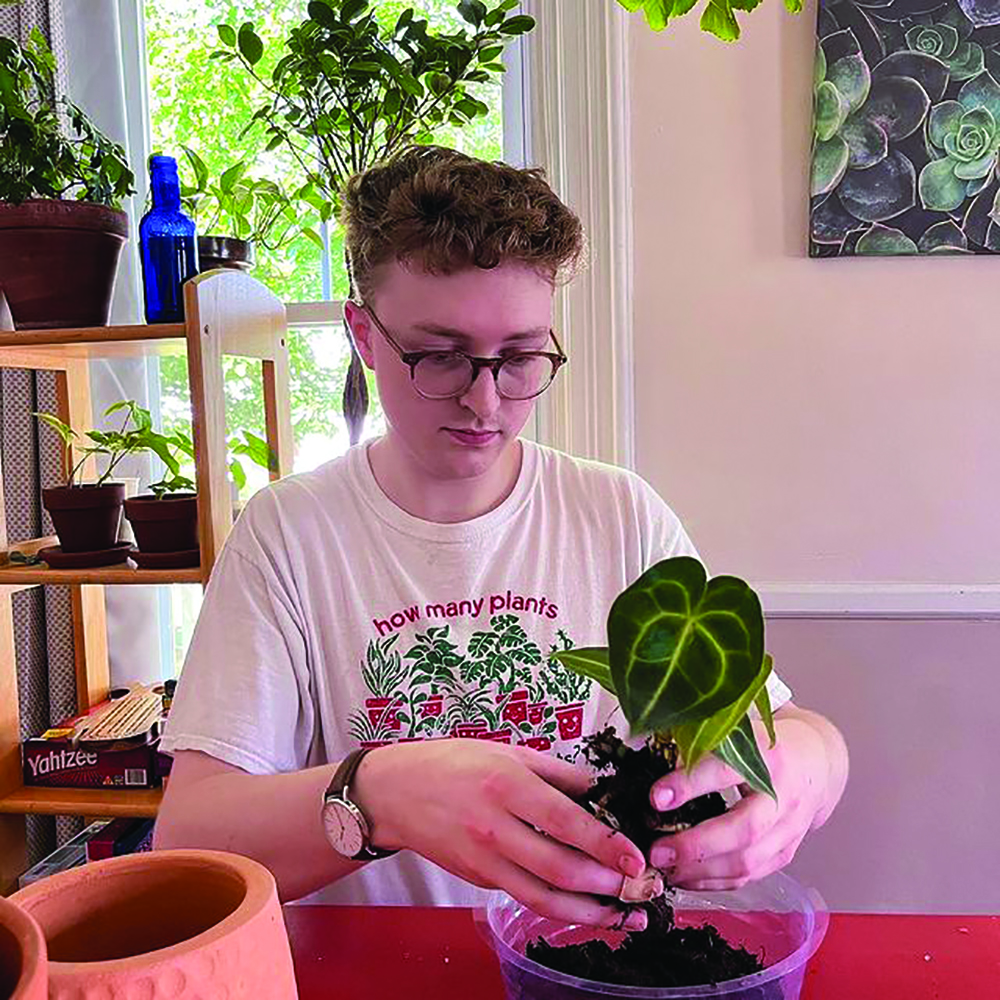When it comes to house plant care, it is easy to focus on the tangible elements of soil, water, and sunlight. However, air quality and its movement are pillars of your indoor plants’ overall health.
While most plants slow down their growth in the winter, fungus and bacteria could still thrive in the soil and on their leaves. Air circulation can help mitigate disease, but you don’t need to worry about opening windows to the cold air. Ben Suszczynski of Ben’s Houseplant Service answered questions about a few breezy ways to keep your houseplants thriving through their toughest season.
How does proper air circulation help a plant grow?
When plants are growing in their natural habitats, there is typically a ton of air movement around them. It doesn’t have to seem windy out for this to be true! The air movement helps with preventing fungal and bacterial diseases. When plants are in a smaller space indoors, this can create great circumstances for these conditions to occur. No matter if you have giant windows open all summer, the air movement is nowhere close to what it is outside.
What are common signs of poor air circulation for a plant?
Bacterial or fungal infections are the most common thing to happen because of an overgrowth on the leaves or in the soil of the plant. You will commonly see leaves with some yellow or brown spots forming. These can sometimes be isolated or can spread quickly across multiple leaves and plants. You may also see a fine white film if it is a fungal issue. There are tons of different appearances to these conditions. If there aren’t any obvious pests, I always look at air circulation as the next thing to troubleshoot.
Is the solution as simple as turning a fan on your plants?
It can be! I would strongly recommend having a fan to move around air for at least a few hours per day. It does depend on the number of plants as well. If you have a room full of them, I recommend some big fans. Do not be afraid to have a fan blowing directly at your plants either—mine love it.
How can I best balance air circulation, moisture, and temperature in the Maine winter?
Air circulation is important regardless of temperature or moisture. Again, use fans no matter what the overall conditions are. If your space is very warm and very dry, this creates conditions prime for bacterial disease. If your space is on the colder side and is more humid, this allows fungal disease to thrive. It is usually best to prevent either of these from occurring. I have had the most success with temperatures around 75 degrees (colder at night) and humidity around 50-60%. If you are curious as to your area and the humidity/temperatures, I highly recommend purchasing a small humidity monitor to confirm the true conditions.
Should I consider an air filter or purifier in my plant room/space?
Air purifiers are amazing at keeping the air clean and take a more preventative approach to treating these diseases. It is common for greenhouses and large spaces to have them, but if you are a smaller collector at home, it likely won’t make much of a difference.
Comments are not available on this story.
Send questions/comments to the editors.



